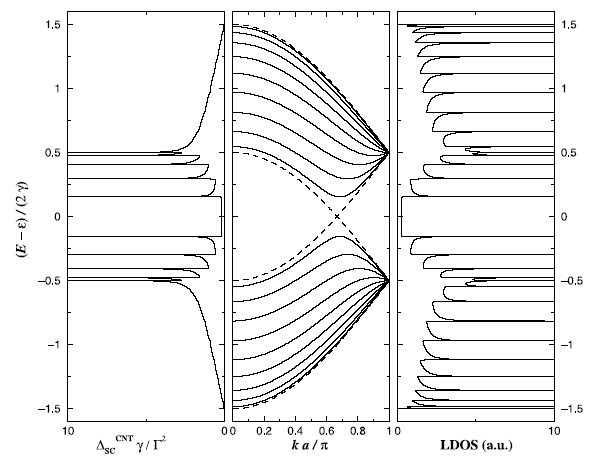The influence of contacts on linear transport through a molecular wire attached to mesoscopic tubule leads is studied. It is shown that low dimensional leads, such as carbon nanotubes, in contrast to bulky electrodes, strongly affect transport properties. By focusing on the specificity of the lead-wire contact, we show, in a fully analytical treatment, that the geometry of this hybrid system supports a mechanism of channel selection and a sum rule, which is a distinctive hallmark of the mesoscopic nature of the electrodes.

The influence of contacts on linear transport through a molecular wire attached to mesoscopic tubule leads is studied. It is shown that low dimensional leads, such as carbon nanotubes, in contrast to bulky electrodes, strongly affect transport properties. By focusing on the specificity of the lead-wire contact, we show, in a fully analytical treatment, that the geometry of this hybrid system supports a mechanism of channel selection and a sum rule, which is a distinctive hallmark of the mesoscopic nature of the electrodes.
